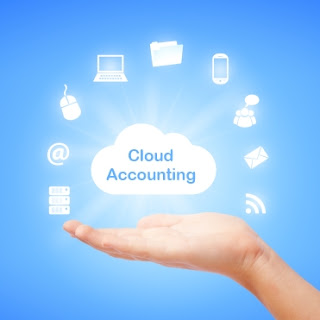 A few clients have been chewing my ear about the drudgery of
accounting software and the time it takes them to deal with paperwork but
seriously – small business needs to take its collective head out of the sand
and check out the cloud!
A few clients have been chewing my ear about the drudgery of
accounting software and the time it takes them to deal with paperwork but
seriously – small business needs to take its collective head out of the sand
and check out the cloud!
Small business accounting software
that’s not available via the cloud can be tedious. Traditionally, it sucks up far too much of your business’ time
and effort. This doesn't add value, and takes the fun out of being in business.
Cloud software can save your company time and money. Most of all – cloud
software has allowed our clients to actually spend more time on and in their
business and less time on the drudgery of doing paperwork. It means less time
dealing with bookkeepers and more time on strategy, sales and marketing.
So
naturally the next question that comes up is - what is this thing called the
cloud? Think about when you use internet banking. Every time you access this
data, you’re using the cloud. The cloud is a platform to make data and software
accessible online anytime, anywhere, from any device. Your hard drive is no
longer the central hub. You have the control provided you have access to the
internet.
But
where is my data kept? For some reason we are more concerned about where our
data is kept when using cloud based accounting software then where our banking
details are kept. Truth is most of our data is spread around the globe. Yes
much of it is in Australia however depending on the companies you deal with,
many of us maybe surprised to find that our data is being accessed by call
centers from around the world regardless of where it is stored. Much is in
highly securitised servers - and no one can give an iron clad guarantee that it
will always be safe.
Problems
with traditional accounting software
- The data in the system isn’t up to date and neither is the software.
- It only works on one computer and data bounces from place to place. For example, on a USB drive. This is not always secure or reliable.
- Only one person has user access. Key people can't access financial and customer details.
- It's costly and complicated to keep backups (if done at all).
- It's expensive, difficult and time consuming to upgrade the software. Cloud updates overnight usually and doesn’t have any downtime.
- Customer support is expensive and slow.
Xero is a breath of fresh air to cloud accounting; Reckon
and MYOB are quickly trying to catch up. At Sothertons we assist all businesses
in assessing the best and most cost effective software to make the bookkeeping
less of a chore and more of a value add. Call the experienced team for more
information on 4972 1300.

